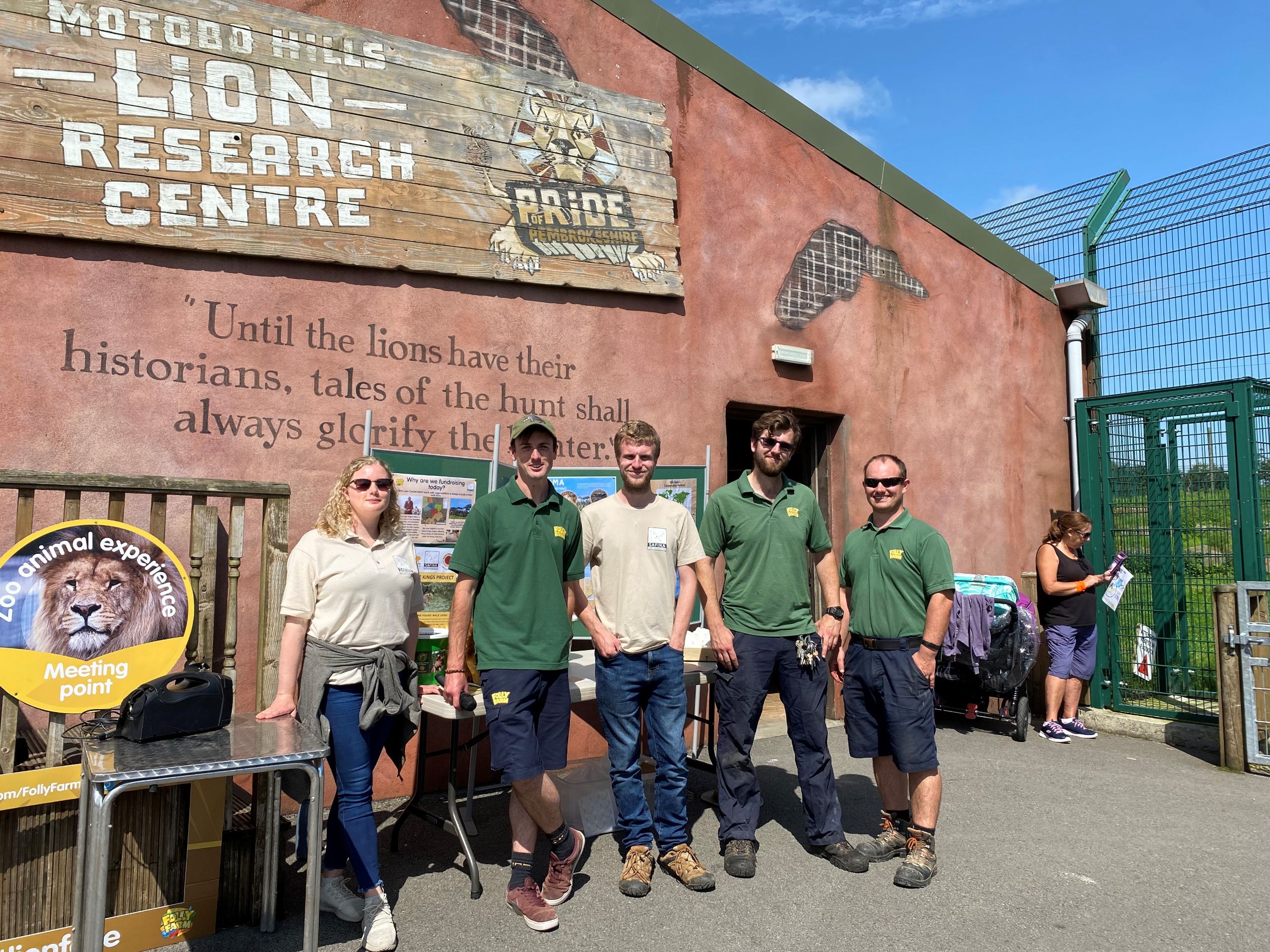

Our ‘ex-situ’ conservation work helps animals in their natural habitat.
As well as the conservation work we do through our breeding programmes, we partner with several conservation organisations and charities to help the wild cousins of our animals.
It’s not just about raising money, although we do that too. It’s about raising awareness amongst you, our half a million visitors, about the threats facing animals and what you can do to help. Here’s some of the people we’re doing great things with.
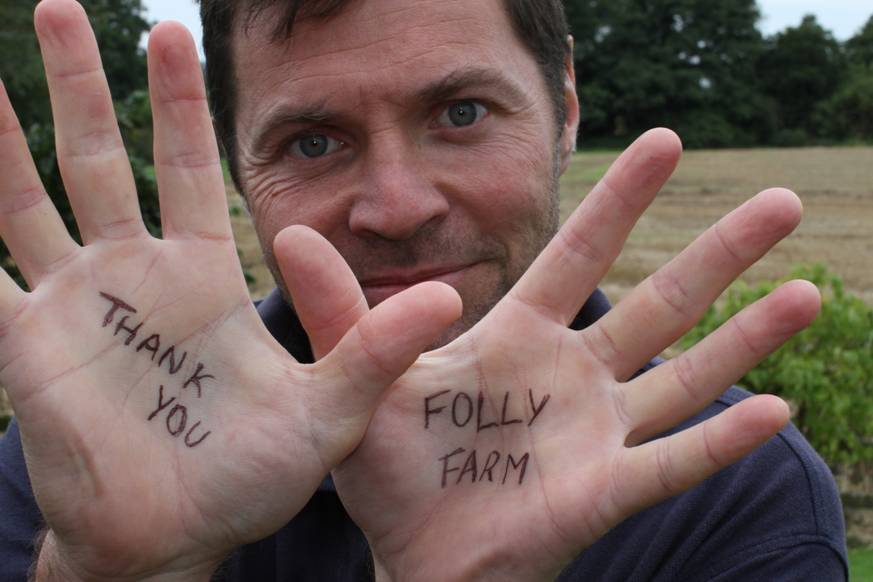
Registered charity number: 1109670
We’re supporting WVI’s Amur leopard reintroduction project. There are fewer than 35 Amur leopards left in the steppes, or grasslands, of Russia. The biggest threats they face are poaching, habitat destruction and infectious diseases transmitted from domestic animals, such as dogs.
The money we’ve raised has funded air travel for zoo vets and bought vital equipment to health check the wild population.
Photo: Steve Leonard, veterinarian and patron of WVI (and that vet off the telly!)
Registered charity number: 1188719
We’ve been supporting BMAC’s work in Morocco for a number of years. The Barbary macaque, which you can see at Folly Farm, is at risk of extinction in the wild. The biggest threat facing them is being illegally taken from the wild for the exotic pet trade.
All of our macaques were illegally taken from the wild and kept as pets before joining us as part of a rehoming project from a sanctuary in the Netherlands. Sian Waters is the volunteer executive director for BMAC and she’s from South Wales. Sian and her team carry out vital work with children in Morocco to raise awareness of the importance of protecting the macaque and not accepting money to steal them.
We help fund the ‘Monkey Bus’ which goes around schools and communities to spread the conservation message and their vital field surveys to monitor the wild population of macaques.
Photo: A Folly Farm keeper in the ‘Monkey Bus’ on a voluntary field trip to Morocco
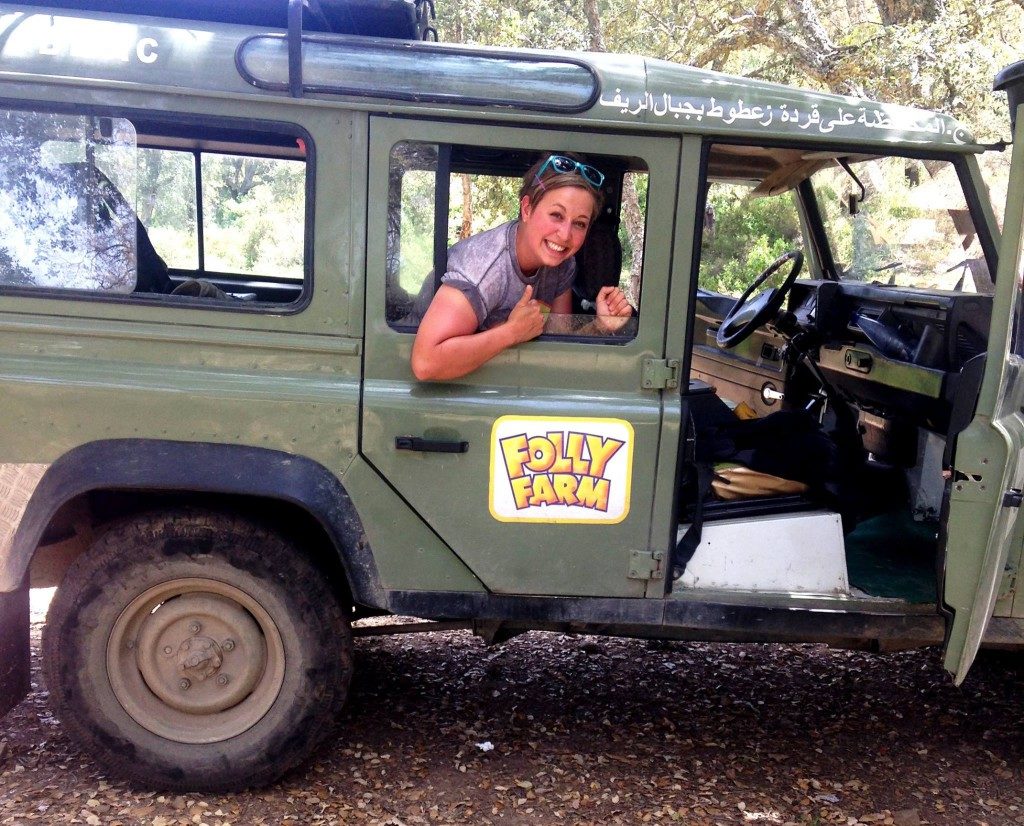
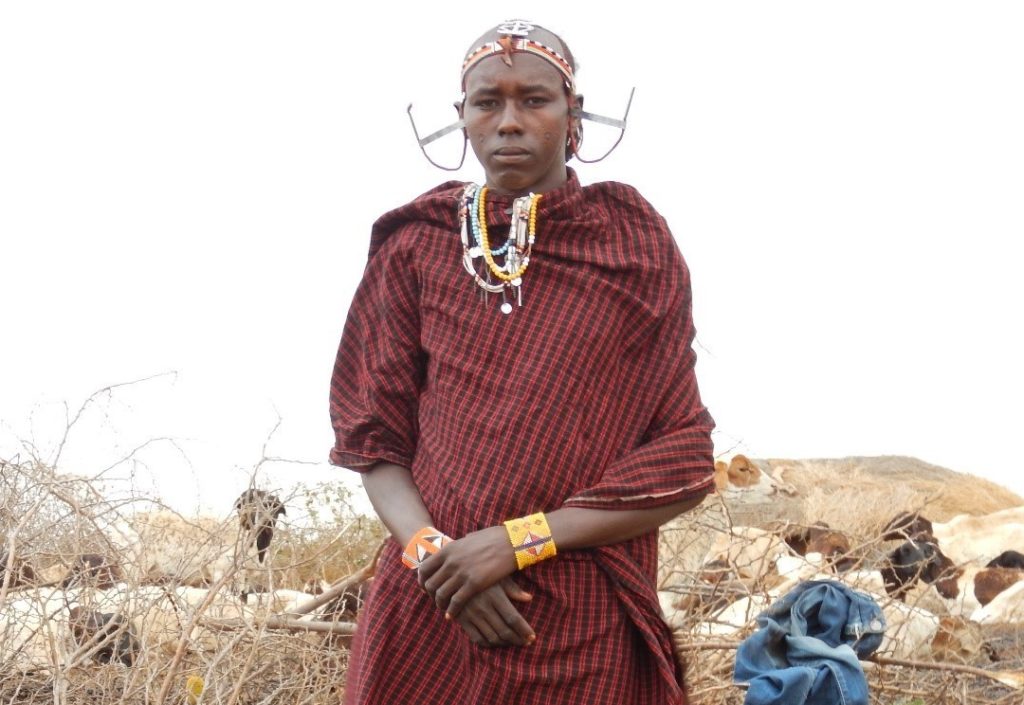
Registered charity number: 1172709
We’re helping the Safina Lion Conservation Fund to raise awareness of, and funds for, lion conservation. Safina works with several conservation organisations working to protect lions in the wild. It’s first project was working with Lion Guardians. The Lion Guardians approach involves recruiting young, traditionalist Maasai and other pastoralist warriors to learn the skills needed to effectively mitigate conflict between people and wildlife, monitor lion populations and help their own communities live with lions. We’re pleased Safina is using the funds we’ve raised to sponsor one of these warriors by donating the money needed to pay their yearly salary. Safina’s current Lion Guardian is Kuya Kipampa.
Photo credit: John Merishi for Lion Guardians – Kuya Kipampa is sponsored by Safina through the Lion Guardians project.
Registered charity number: 261103671
Helping the wild cousins of our red panda is an important part of our conservation work. We’ve partnered with the Red Panda Network to raise awareness of, and money for, the vital work they do to monitor and protect the declining population of wild red pandas.
Our Forest Guardian
We’re proud to have previously sponsored ‘Forest Guardians’, who are employed by the Red Panda Network to monitor and protect red panda habitats, as well as educate communities on red panda conservation. Our latest donation in November 2021 is going towards the First Panda Challenge which will help Red Panda Network through it’s kind supporters to double donations made in November and December.
Photo: Menuka Bhattarai, working to protect red pandas in the wild
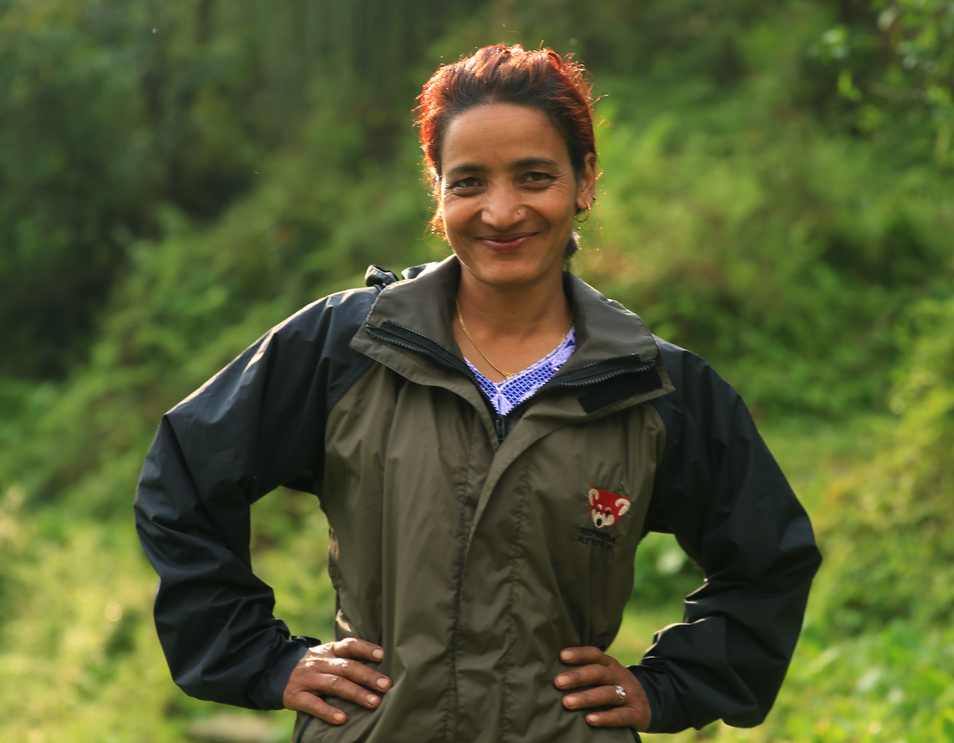
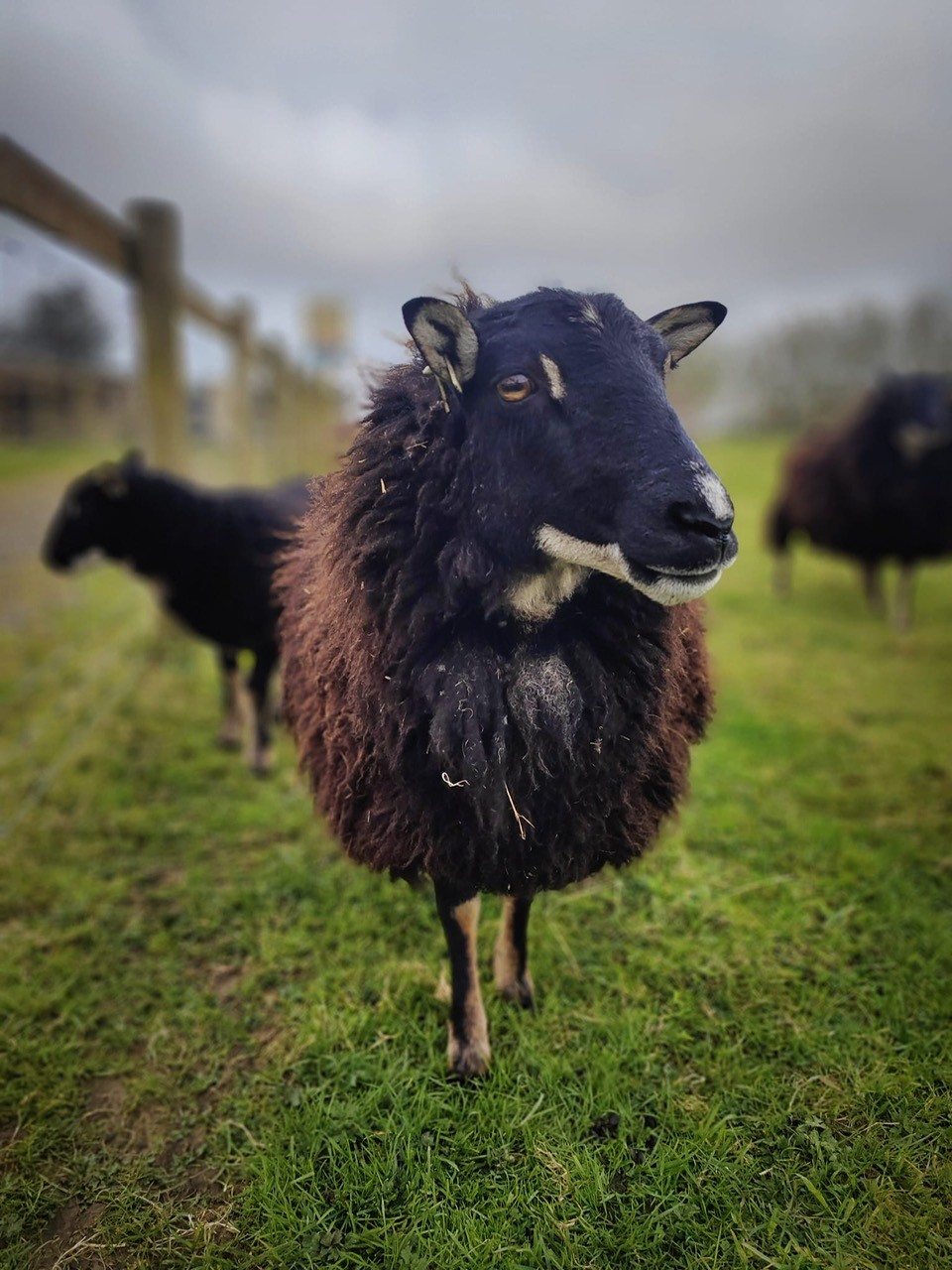
Registered charity number: 269442
The Rare Breed Survival Trust (RBST) is a national charity working across the UK to safeguard the future of rare and native livestock and equine breeds. It aims to reverse the decline of all livestock breeds listed on their watchlist and to have all the breeds on the watchlist in a stable position by 2028.
In 2023, Folly Farm was accredited by the RBST as a rare breed farm collection, the first, and currently only, Welsh farm park to be so. Our farm houses a variety of breeds that are listed on the watchlist including traditional Welsh breeds like the Badgerface and Balwen sheep. Donations help to support their vital work, like the formation of the watchlist to inform breeding recommendations and their ‘Gene Bank’ project that aims to preserve genes of these ancient breeds.
Formed in 2008 by eight European zoos, Sphenisco is a non-profit organisation which works with scientists and activists in Chile and Peru to save the Humboldt penguin from extinction, while also raising awareness about the threats they face.
The Humboldt penguin is considered vulnerable to extinction due to many factors including overfishing, entanglement in fishing gear, development on their coastal breeding sites, guano harvesting (harvesting of their faeces for crop fertiliser) and climate change.
Folly Farm is supporting Sphenisco’s projects in Chile, where they monitor and protect the breeding colonies and campaign for the creation of marine protected areas. Sphenisco are also working with Chilean universities and partner organisations to conduct important research in order to understand the breeding habits of this species.
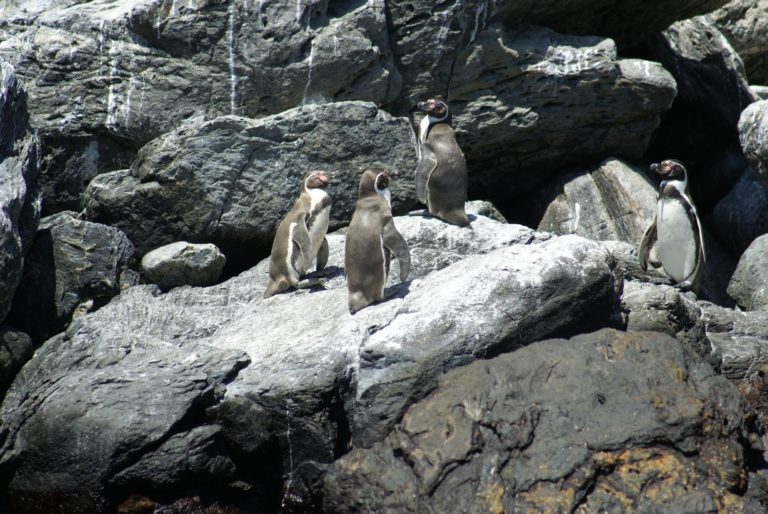
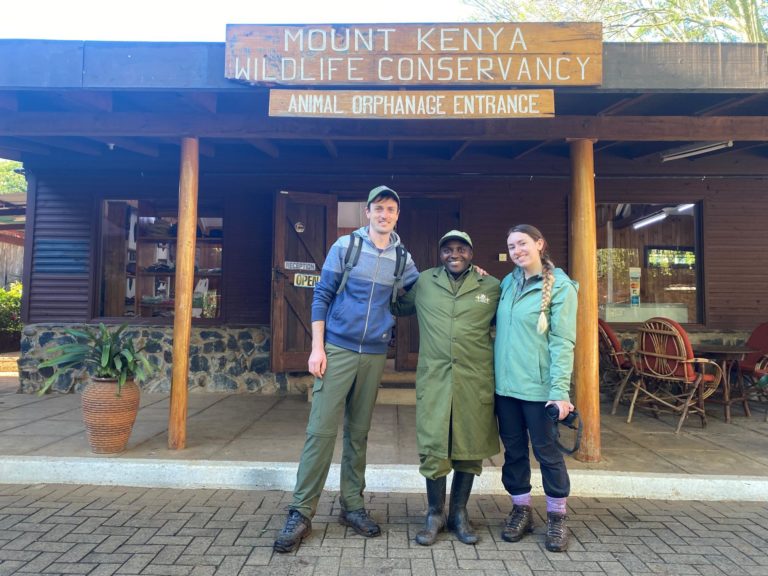
Mount Kenya Wildlife Conservancy (MKWC) is a non-profit trust dedicated to preserving the environment and the wildlife within. The conservancy is located at the foot of the scenic Mount Kenya Forest ecosystem – a UNESCO World Heritage site and region of significant biodiversity.
The conservancy’s three main programmes include a breeding and rewilding programme for the critically endangered Mountain Bongo antelope, an animal orphanage, and a conservation education programme.
Folly Farm supports MKWC due to its commitment to conserving the Mountain Bongo, of which there are fewer than 100 left in the wild.
In 2023 our Conservation Officer Jack helped track endangered bongo antelope in Africa. You can read his story here.